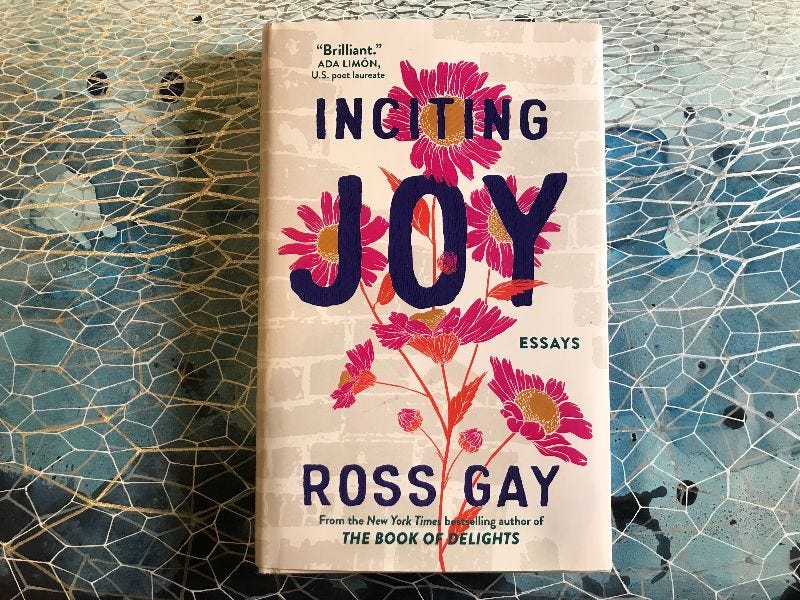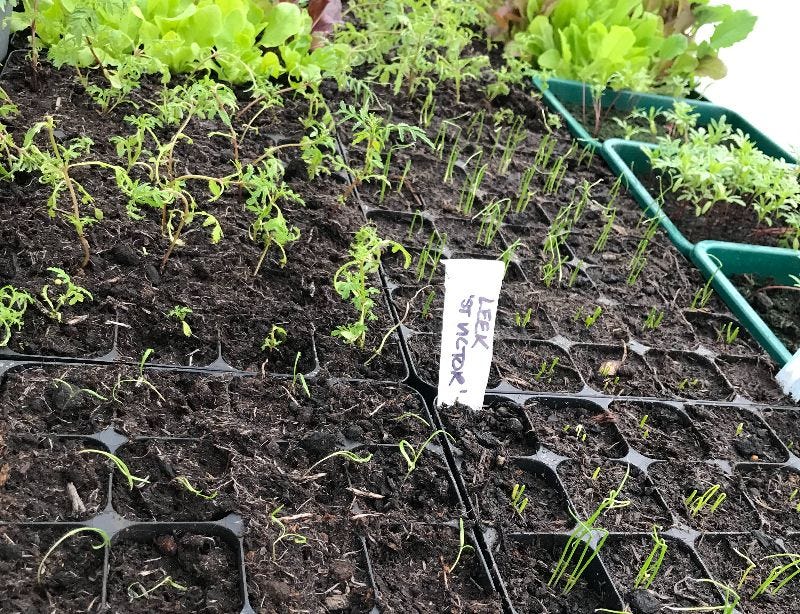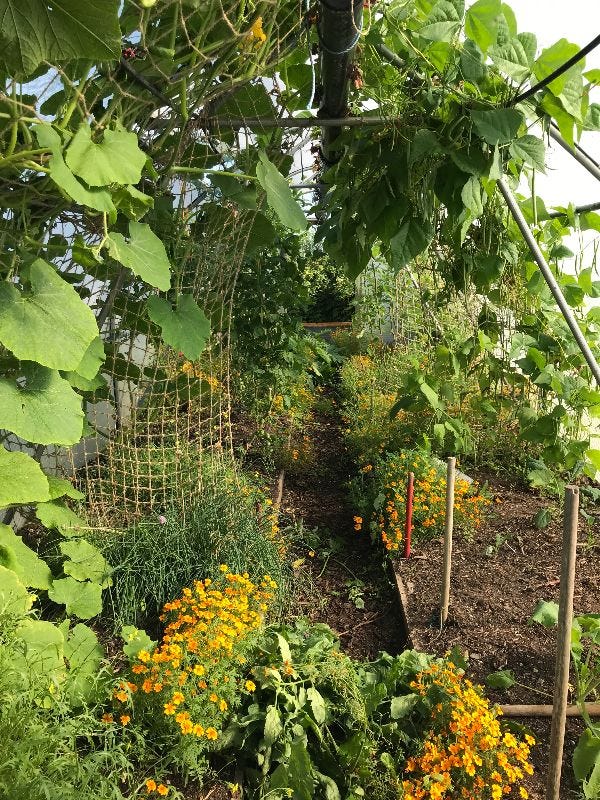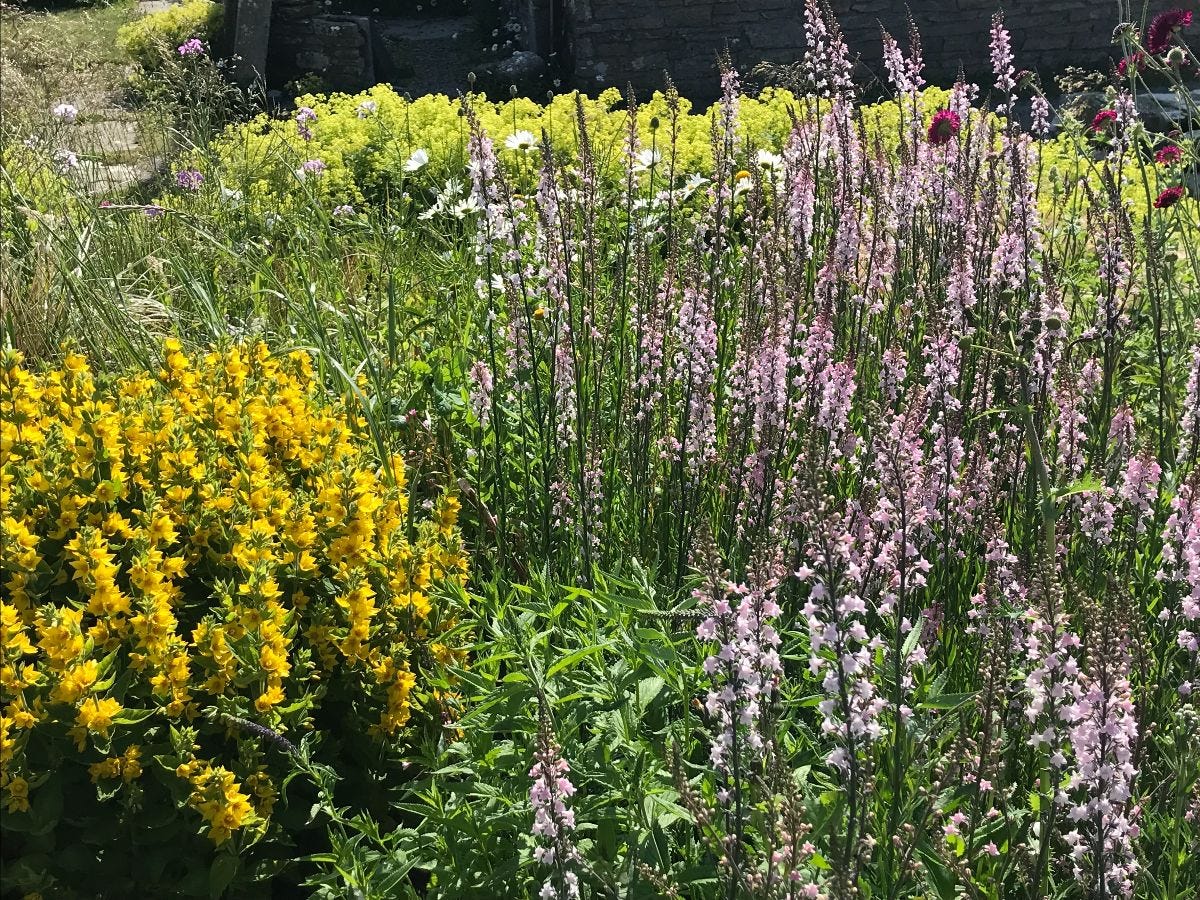An incitement to complicated joy
Ross Gay’s “Inciting Joy” has been keeping me company these past few days, my antidote to the greyness of late January. A poet, Gay’s prose is playful, looping, forking into asides and lengthy footnotes, inviting you to meander alongside. As title the suggests, he explores ‘incitements’ or moments when a kind of joy can be found.
Gay understands both the freedom and lightness that joy brings us and the intimate relationship between joy and sorrow. He explores this from multiple angles, but most of all through the experience of the death of his father, which he writes of with compassion and insight.
Joy is a feeling that Gay describes "as thousands of birds taking flight in my chest, which means, I think, the long and beautiful breaking into something more than me."
This is no simplistic call to ‘find your bliss.’ This joy is complex. Gay is unafraid of the darkness, loss, injustice, grief and anger that are part of our experience, but he also flatly refuses to accept that the joys we do find are a privilege, ever. They are our birthright.
Here he is on, for example, the joy of gardening:
“One thing I want to be cautious of – by which I really mean refuse – are the ways e sometimes consider, for instance, gardening (or health, or healthcare, or potable water or clean air or pleasant and stable housing or decent jobs or good schools or libraries or living relatives or being unabused or having ‘free time’ or not being imprisoned or not living near a power plant or incinerator or a landfill of a million acres of corn or soybeans sprayed with toxins) a privilege, which actually obscures the fact that to be without a garden, or to be without green space, or to be without access to a park or clean water or the forest or fruit trees or birdsong or shade or a deep and abiding relationship with a tree, or to be without healthcare, and so often to be without health, is violence, it is abnormal (even if it is the norm) and it is an imposition of precarity that is not natural. All these comorbidities, all these communities more exposed to toxins, all this absence of sick pay or good pay, every day, is not simply an affliction, (Oh too bad! You landed in Cancer Alley! Or, Oh, bummer about those opioid deaths! Or, So unlucky about the lead in your water!) but an infliction. It is on purpose. And the withholding from some of the means of life, of which means there are plenty to go around, is a disprivilege. Which is to say; life, though it is a gift, is not a privilege.
And rather than indulging in the virtue signalling that simply reifies or maybe even enjoys the guilt – guilt can be titillating, let’s admit that; bathing in it oneself or dumping it on others – of so-called privilege, rather than wading around in that little impotent cess-pool of hand-wringing regret, how about instead we figure out how to get rid of disprivilege, which we could do.
Part of which includes acknowledging that, baseline, we should all be able to get into a garden or a forest or an orchard if we want. It includes acknowledging that we should all have clean drinking water and good schools and excellent healthcare and safe housing. What would happen if we acknowledged that none of this is privilege, but rather it is as it should and could be? And what if we figured out, together, in a million different ways how to make it so? Or to say it another way: rather than cursing the darkness, what if we planted some seeds?”
Seedlings in the polytunnel, March 2022
I’m not lucky, therefore, to have access to green space, clean air, a comfortable home, enough rest, nourishing food. Because if I say I’m ‘lucky’ it implies that those who do not have such things are somehow unlucky. But it’s not bad luck that is bringing so many to their knees. It’s not happenstance that denies millions, no, billions of people the basic necessities of a decent life. It’s by design. The ‘system’ is not broken. It’s working perfectly to do what it was designed to do, which is to extract maximum shareholder profit from an ever-expanding sphere, to turn more and more of this bountiful, beautiful Earth and our short, precious human lives upon it into money.
Tulips in full bloom, May 2022
Gay repeatedly returns to community, connection and care and as incitements to joy. Through chapters on basketball, music, gardening, and caring for his ailing father he understands joy as an act of resistance against injustice, as insurgency against conformity, as a refusal of so-called rugged individualism and a deep recognition that we live "in dependency", each of us beneficiaries of "a largesse so large and so deep you will never in one lifetime get to the bottom of it".
Polytunnel, July 2022
The essay on ‘School’, the longest and most powerful incitement, is full of a shining, righteous anger at abuses of power and the increasing corporatization of an education system that co-opts students’ genuine love of learning to serve extractive capitalist agendas. He captures and explains back to me with clarifying eloquence why grading student work seems to suck the oxygen out of my lungs, how marking has little to do with learning and creativity which are more unruly things than can be captured numerically, and why the repetitive and exhausting cycle of marking so many submissions eventually made me feel so claustrophobic that I left formal education. It’s a great piece of writing that merits its own post. So watch this space…
Garden in Orkney , June 2022
But I will close for now with this inspiring passage on what learning together can and should be:
“Education, defined as ‘being wonderstruck, being flummoxed with delight and calling attention to what was unpredictably beautiful…through careful, loving observation and enquiry…-‘we wondering together’, taking note of what they have found beautiful or true, noting what they want to keep trying or working on, and noting what they can let go.”
“We wanna note the wonders of what we make, and we wanna wonder about them – what is this thing? How is it working? What is it showing us? How do we listen to it, and learn from it? How does this thing show us how we might try to make a next thing? Wondering together again and again and again like this, an endeavour of unfixing, of dismastery. Of community-supported bewilderment, is the practice. Which means as well that the practice of inquiry is a practice of changing…it unfixes us. Our work, born of this practice of unfixing, reminds us that we are forever unfinished…and perfectly so.”
I love this approach to learning together, this wondering and unfixing, this dismastery. It really chimes with how I approach coaching, not as someone with all the answers, but as someone with curiosity, and delight in the process.
May you find some community-supported bewilderment this week.
Sam









